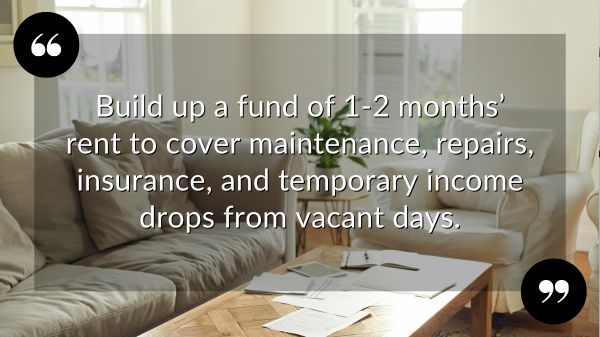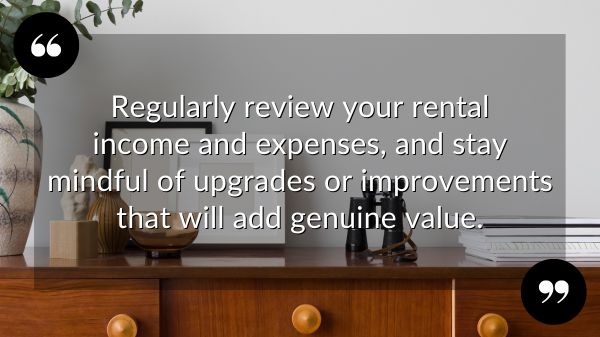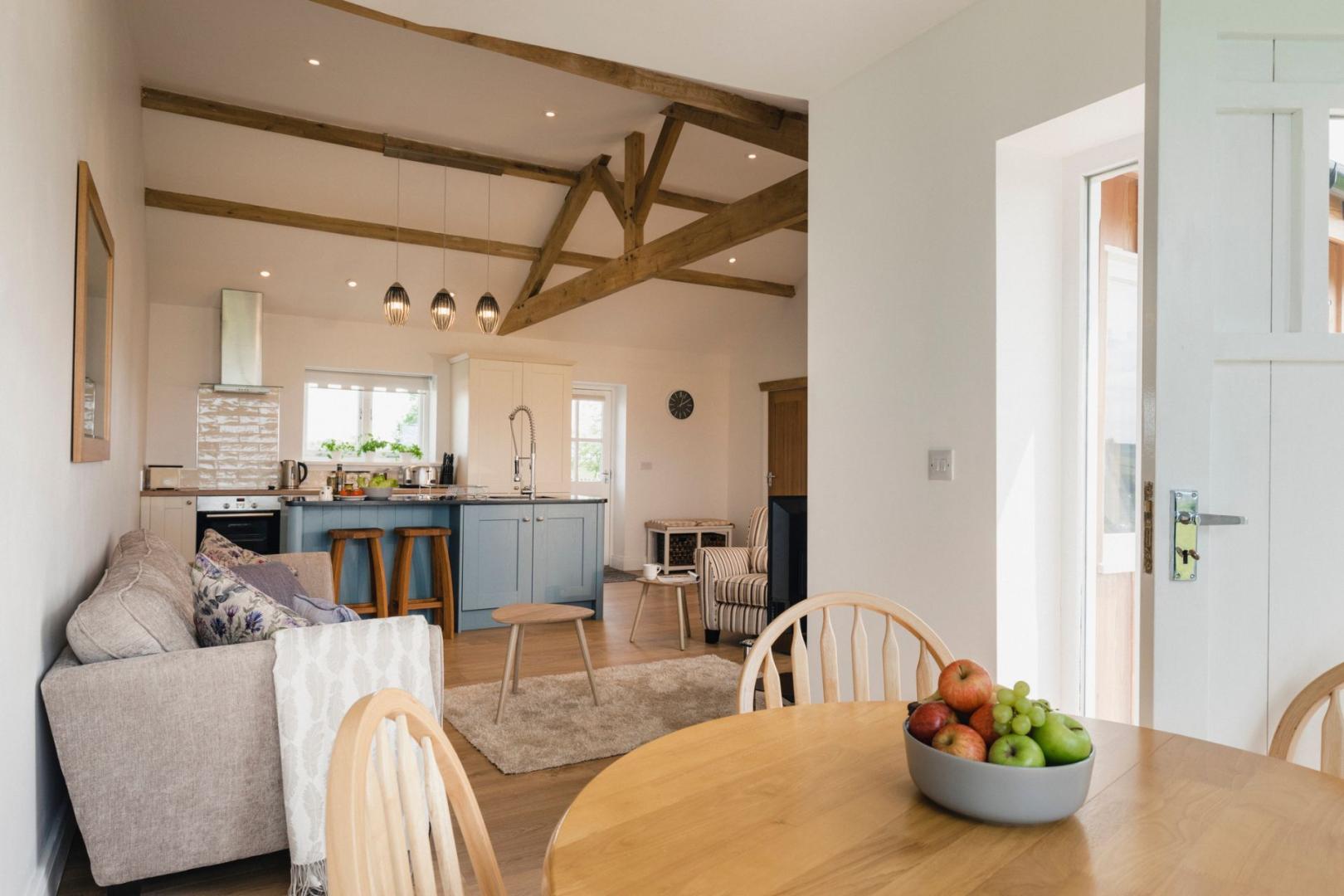Are you thinking about becoming a landlord, but wondering how to go about it given all the recent and upcoming changes in the law?
The buy-to-let landscape is certainly shifting, and as traditional landlords with short-term business models exit, the dwindling supply of homes is driving up rents and creating new opportunities.
These aren’t about quick wins. They’re about building lasting wealth and future financial freedom by establishing a robust and responsible business that provides good-quality rental homes.
If you’re new to landlording, understanding the basics is key to building a successful portfolio, and this guide is packed with tips to build a strong business from the ground up, including:
- Getting Your Finances Right
- Finding the Perfect Investment
- Understanding Your Legal Obligations
- Attracting & Managing Tenants
- Optimising Your Investment & Avoiding Pitfalls
Entering the world of buy-to-let can feel like a big step, but it’s also an exciting one that offers real potential for financial growth, security, and a lot of personal fulfilment, so let’s dive in.

GETTING YOUR FINANCES RIGHT
Starting your buy-to-let journey begins with being right on the money! This means more than just saving; it's about understanding every cost involved, from buying a property to running it day-to-day.
- Most buy-to-let mortgages need a 25% deposit, and lenders generally want to see a monthly rental income of at least 125% of the monthly loan repayment.
- Lenders usually charge product fees between 0.5% and 1.5% of the loan amount. You can either pay them upfront or through your monthly instalments at the mortgage interest rate.
- There’s normally a charge to have a property valued and assessed as suitable security, and if you use a broker to find the best deal (which is a good idea), they may also charge a fee.
- Other buying costs include solicitors' fees for the legal work, and stamp duty, including the second-home supplement if you already own another property.
- Build a contingency fund of 1-2 months’ rent to cover maintenance, repairs, insurance, and temporary drops in income from vacant spells - more on all of that later!
A clear financial picture ensures you're ready for anything, setting a stable course for your investment and keeping your stress levels comfortingly low.

FINDING THE PERFECT INVESTMENT
Selecting the right property is crucial for your buy-to-let success and means doing your homework in multiple areas to make a profitable and popular choice.
- It’s wise to start in an area you already know, but wherever you choose, speak to local letting agents to identify locations with high demand for rental homes.
- Consider the type of property that best suits the kind of tenant you're aiming for, whether it's a small flat for young professionals or a larger house for families.
- Match your target market to local amenities. Think schools, parks and quiet streets for children, while professionals tend to go for good transport links and places to eat and drink.
- Research rental values to determine potential yields and identify properties that meet lending requirements for a mortgage.
- Remember that fixer-uppers take time to renovate and leave you without income, and that homes with low energy performance ratings will likely need updating with future legislation.
- Think about the future. Upcoming regeneration plans, highly rated schools, or a thriving local high street are great for long-term popularity, helping your returns increase year on year.
Putting in this upfront effort makes all the difference to your investing prowess, giving you the skills to choose properties that deliver consistently reliable income and build equity to finance future purchases.

UNDERSTANDING YOUR LEGAL OBLIGATIONS
Understanding the ins and outs of lettings law is a must for every landlord. This isn't just about protecting your property and keeping your tenants safe; it's also crucial for avoiding penalties and fines.
- Use a legally sound tenancy agreement that outlines all the rights and responsibilities for you and your tenant, backed up by a detailed inventory with photographic evidence.
- Protect your tenant’s deposit in a government-approved scheme within 30 days, and provide your tenants with details of the provider and the procedure for recovering their deposit.
- Comply with all regulations around energy performance certificates, gas safety checks, electrical safety inspections, and testing smoke alarms and carbon monoxide detectors at the right time.
- Carry out mandatory checks to ensure your tenant isn’t on the UK sanctions list. And for rental homes in England, conduct Right to Rent checks for any non-UK citizens.
- Know your obligations regarding Trading Standards for information in promotional listings, and ensure your property stays fit for human habitation throughout the tenancy.
A thorough understanding of legal obligations safeguards you and your investment, not only helping you avoid severe penalties but also setting the stage for a smooth and successful rental experience.

ATTRACTING & MANAGING TENANTS
Being a magnet for the right tenant and managing them successfully involves effective advertising, thorough referencing, and establishing clear ways to communicate.
- Check local letting agents for effectiveness, from the quality of their photos and descriptions to which online property portals they use for generating maximum exposure.
- Screen tenants before they view to ensure they're a good fit for the property and can move at a time that fits with your timescale.
- Implement a thorough referencing process that includes credit checks, employment verification, past landlord references, and bank statements to minimise the risk of arrears or damage.
- During the tenancy, make regular inspections to ensure your property is being well cared for, and keep your tenants informed about the status of any maintenance issues or repairs.
Ultimately, strong marketing, careful tenant selection, and proactive management are the foundation of stable tenancies, helping you to minimise void periods and build a positive experience for everyone.

OPTIMISING YOUR BUSINESS
Beyond the day-to-day running of your rental property, optimising your business will keep things running smoothly and avoid common mistakes. Ultimately, it's about acting like a professional, so be sure to:
- Keep up to date with landlord tax rules, claimable expenses, changes to mortgage interest relief, and capital gains tax if you sell. Keep every receipt and maintain accurate records.
- Regularly review your rental income and expenses, and stay mindful of upgrades or improvements that will add genuine value to keep your property performing.
- Schedule recurring reminders in your diary for two weeks before the expiry date of each safety certificate to give yourself ample time to book in contractors for renewals.
- Protect yourself with comprehensive landlord insurance, including rent protection, contents, public liability, and emergency cover.
- Get recommendations for reliable tradespeople, including an electrician, plumber, gas engineer, and odd-jobs contractor to cover a wide range of jobs.
As a tip: work with a managing agent at the start so you can share the legal risk with an experienced team as you build your knowledge and confidence.
Ready to thrive with buy-to-let?
If you’re a first-time landlord in the Wilton or Salisbury area, or simply looking to enhance your existing portfolio, we’re here to help you every step of the way.
Call us on 01722 580059 or email us at info@piccoloproperty.co.uk for expert lettings advice and a confident start to your landlord journey.






Share this with
Email
Facebook
Messenger
Twitter
Pinterest
LinkedIn
Copy this link